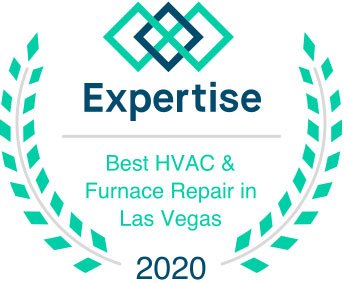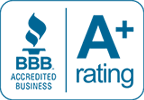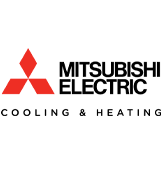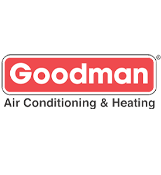
Indoor air quality is vital to our health and well-being, especially since we spend most of our time indoors. Unfortunately, poor indoor air quality can cause respiratory problems, allergies, and other health issues.
But there’s a service that can help in preventing those health problems. Have your indoor air quality tested regularly and feel confident that your air is clean and healthy. But how often do you need to have your indoor air quality tested? Here’s what you need to know.
When You Move into a New Home or Office Space
Have your indoor air quality tested if you’ve recently moved into a new home or office space. This is especially important if the building has a history of mold, moisture, or other indoor air quality issues. Testing can help identify potential issues and ensure you and your family or employees breathe clean air.
The Environmental Protection Agency (EPA) recommends testing indoor air quality when moving into a new home or office space. According to the EPA, new or remodeled homes can have a higher concentration of volatile organic compounds (VOCs) than older homes. VOCs can have adverse health effects.
After Renovations or Construction
Renovations or construction can release dust, debris, and other pollutants into the air. For example, suppose you’ve recently renovated or built a new addition to your home or office space. In that case, it’s essential to have your indoor air quality tested to ensure the air is safe to breathe.
Have you ever removed a popcorn ceiling or sanded a drywall patch before painting? Those fine particulates will eventually settle, but they first circulate through the air. Unfortunately, even those minor renovations can add to the problem.
The EPA recommends testing indoor air quality after these projects because they can release even more harmful pollutants, such as asbestos or lead, into the air. In addition, testing can help identify any potential hazards and ensure that the air you breathe is clean and healthy.
When You Notice Unusual Odors or Symptoms
Suppose you notice unusual odors, symptoms such as headaches, respiratory problems, or other signs of poor indoor air quality. In that case, it’s important to have your air quality tested. These symptoms could be a sign of mold, mildew, or other indoor air quality issues.
According to the EPA, if you notice unusual odors or symptoms in your home or office, you should investigate the source of the problem and have your indoor air quality tested if necessary. This is because indoor air pollutants can have immediate and long-term health effects, and identifying the source of the problem is the first step in resolving it.
When You Have Pets
Pets can have both positive and negative effects on indoor air quality. On the one hand, pets can provide emotional support and companionship, positively impacting our mental health and well-being.
However, pets can also be a source of indoor air pollution and allergens. According to a study published by the National Library of Medicine, pets can release various pollutants into indoor air, including pet dander, fur, and urine. These pollutants can trigger allergies and asthma symptoms in some individuals and contribute to indoor air pollutants buildup.
Pet dander, for example, is a common indoor air pollutant that can cause respiratory problems and allergic reactions in some people. Regular vacuuming and dusting can help remove pet dander from surfaces and improve indoor air quality.
In addition to pet dander, pets can contribute to indoor air pollution through urine and feces. These waste products can release ammonia into the air, which can cause respiratory problems and irritation. Regular cleaning of litter boxes and other pet waste areas can help reduce the buildup of indoor air pollutants.
To mitigate the adverse effects of pets on indoor air quality, taking steps to control indoor air pollution is essential. This may include regular cleaning and maintenance of HVAC components, air purifiers, HEPA filters, and proper ventilation in your home or office.
When to Test Indoor Air Quality
The World Health Organization (WHO) recommends having your indoor air filters cleaned at least once every three months to ensure they function correctly and effectively remove indoor air pollutants. However, the frequency of cleaning may depend on several factors, including the type of air filter, the number of contaminants in your indoor air, and the level of usage.
It’s important to note that air filters are just one aspect of maintaining good indoor air quality. Regular cleaning and maintenance of other HVAC components, such as air ducts, furnaces, and air conditioning systems, can also help improve indoor air quality, lessening the buildup of indoor air pollutants.
The EPA recommends regular indoor air quality testing to ensure your indoor air is free from harmful pollutants. Testing can help identify potential problems and allow you to act before they become significant issues. Additionally, regular testing can help you track changes in your indoor air quality over time.
At Polar Air & Heating, Inc., we offer indoor air quality testing services to help ensure your indoor air is always safe and healthy to breathe. We use the latest testing equipment and techniques to identify potential issues and provide a detailed report of our findings. Contact us to learn more about our air quality testing services or to schedule a testing appointment.
Other Ways to Help Maintain Healthier Air Quality
It’s important to note that indoor air quality can be affected by a lot of different things, including outdoor air pollution, household products, and building materials. Regular testing and maintenance can help ensure your indoor air is safe and healthy. Additionally, there are some things you can take to improve your indoor air quality.
Ventilate your home or office by opening windows or using exhaust fans. You can also help the air quality by regularly cleaning your home or office by dusting and vacuuming. Try to use natural cleaning products and avoid harsh chemicals. Another good tip is maintaining a healthy humidity level (30-50%) in your home or office. And if you happen to smoke, try to avoid smoking indoors.
You may also want to avoid using air fresheners, scented candles, and other fragranced products that can release harmful pollutants into the air. You can also have your home tested for radon, a naturally occurring radioactive gas that can seep into homes and cause lung cancer. Also, be sure to use a carbon monoxide detector. It can monitor for leaks from gas appliances or other sources of carbon monoxide.
Get Indoor Air Quality Help Today
At Polar Air & Heating, Inc., we’re committed to helping you maintain a healthy indoor environment. We offer a full range of indoor air quality solutions, including humidifiers and dehumidifiers, germicidal UV lights, ventilation, air purifiers, and air filtration. Our team is also available to provide a full range of heating and cooling services for air conditioners, furnaces, and heat pumps in Las Vegas and the surrounding area. Contact us today to learn about our indoor air quality solutions and HVAC services.






















